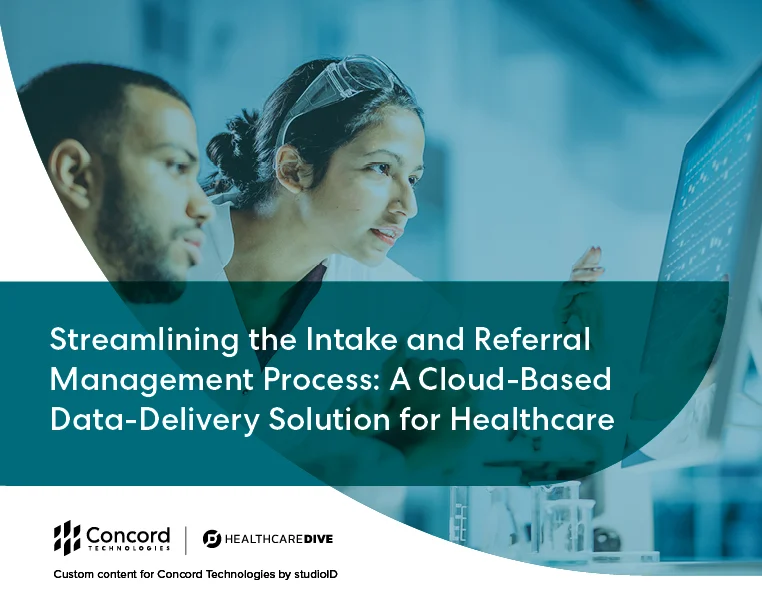The patient-referral process is broken.
The current setup, despite being a critical component of the healthcare system, is a low-tech interaction. It often requires manual document processing and other slow, error-prone and hands-on procedures. That negatively affects operational costs and, most importantly, patient care.
Most referrals are delivered via fax, with some coming in via phone calls, emails, and self-referrals. Each can include a high volume of pages, representing a hodgepodge of patient data in inconsistent formats, that can take hours to arrive. Then all that material must be reviewed in order to make an admission decision. If a patient is admitted, it then can take days for that data to be entered into an electronic health record, or EHR, system. That’s another roadblock to streamlined, effective operations and care delivery.
Simplifying complexity within the mental health provider data exchange landscape
Behavioral health providers face a unique set of challenges, many of which were exacerbated by the pandemic. As the need for their services increases, a shortage of providers and health insurance coverage issues are hindering access to care. A recent U.S. Government Accountability Office study found that consumers are experiencing challenges in finding in-network providers and delays in receiving care. The study also found that the process for getting approval for these services can be more restrictive than for other medical services.
Now add to that the urgent (and increasingly mandated) need to achieve more efficient interoperability between the patient intake process and the rest of operations, much of which can happen by accessing improved technology and advanced capabilities by moving to the cloud. There are many positives to be gained by taking this step: providers can prevent errors caused by inaccurate data input, provide analytics for tracking patient referrals and visits, and streamline the process for greater productivity. Few would argue that this is an important move across all of healthcare, not just the behavioral health sector — but how to begin?
How about at intake, the very beginning of the process? Concord Technologies has created a new playbook, Streamlining the Intake and Referral Management Process: A Cloud-Based Data-Delivery Solution for Healthcare. Download your copy now and discover how Concord leverages the power of AI and machine learning to streamline intake workflows and remove many of the bottlenecks that can delay care — and along the way, identifies areas for operational improvement that can help grow business and improve patient care and outcomes.

